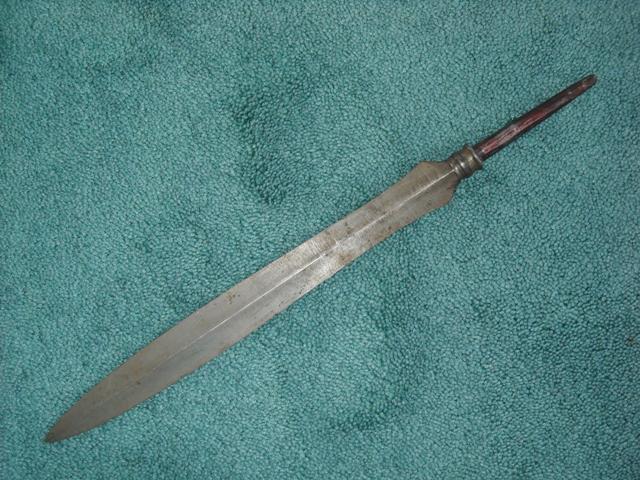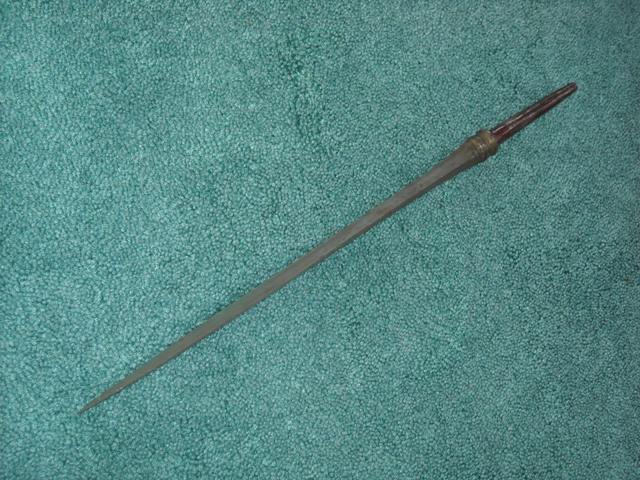Posts: 1,504 Location: Brisbane, Australia
Thu 12 Jan, 2012 1:11 pm
Definitive, no. Unless you know the details of the history of the particular piece.
The problems are that
(a) Similar types of blades (this appies to keris blades as well as spear blades) are made in more than one region.
(b) They've been made for a long time, and are still made in the traditional way.
(c) Blades move from region to region, and are remounted in local style. Fittings are more regionally distinctive, but are often not original to the blade, so of little use to say where/when the blade was made. (AFAIK it's usual to classify keris according to the fittings, and even experts will re-classify a blade as something different when they see the same blade in different dress.)
So, it can be hard to say anything definitive about Indonesian/Malay spears (and other weapons). There are some particular distinctive weapons localised to small areas (like Aceh), but some weapons are widespread.
That said, there are experts in the esoteric art of identifying these things. While the answer might not be definitive, it might be useful. The best online place I've seen to find such experts used to be the Ethnographic Arms & Armour Forum at
http://www.vikingsword.com/vb/ , so you might like to ask there. I don't know of any good English-language resources for this kind of detail (if anybody has suggestions for English-language resources, I'm interested).




